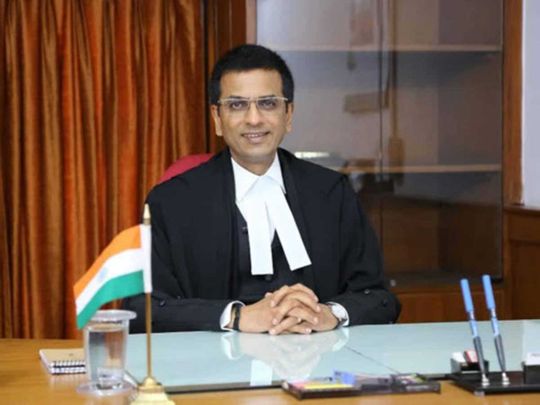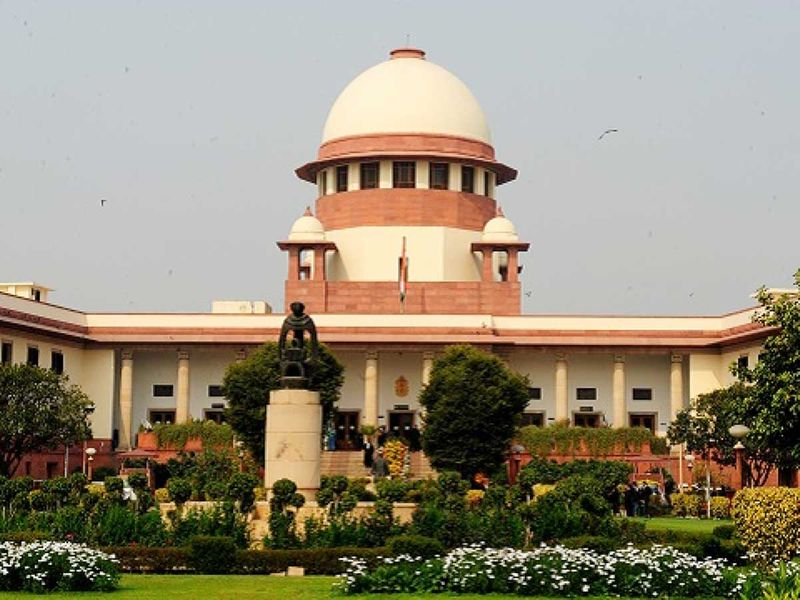
India will get a new Chief Justice on November 9 when Justice D.Y. Chandrachud takes oath. With a tenure of two years, this will be the longest tenure of a Chief Justice in almost a decade.
The development comes at a critical time for the Supreme Court and the higher judiciary which has come in for criticism of its uneven handling of cases pertaining to life, liberty and other basic fundamental rights.
The fact that one former Chief Justice, Ranjan Gogoi, got a Rajya Sabha seat soon after retirement has been another question mark against the conduct of judges in high places.
So, with Justice Chandrachud, there comes a huge burden of expectations. In key judgements over the years, Justice Chandrachud has upheld the values enshrined in our Constitution especially on personal liberty.
In the Aadhaar case, he had a dissent judgement where he said a person’s multiple identities can’t be reduced to a 12-digit number.

In the Bhima Koregaon case he was the only dissenting voice saying that “dissent is a symbol of a vibrant democracy”.
During a bail hearing for TV anchor Arnab Goswami, he made strong observations on the need for High Courts to uphold personal liberty.
In a recent landmark order on abortions in India, Justice Chandrachud was part of the bench which ruled that denying a woman the right of choice violates her personal autonomy and freedom.
No ideological bracket
But liberals in India were not too happy with his take on Ayodhya, he was the author of the final judgement. In that sense, Justice Chandrachud does not fit any particular ideological bracket, which makes his tenure even more interesting.
D.Y. Chandrachud studied at Delhi University’s prestigious St. Stephen’s College and Faculty of Law, and later went on to do his LL.M at Harvard University in 1983.
He was an advocate in the Bombay High Court and Supreme Court and also served as Additional Solicitor General of India from 1998 to 2000.
In March, 2000, he was appointed an additional judge of the Bombay High Court where he served for over 13 years.
In 2013, Justice Chandrachud was elevated as Chief Justice of the Allahabad High Court and later appointed a judge of the Supreme Court in May, 2016.
He comes from an illustrious family. When he was 12 years old, his father took oath as the Chief Justice of India, the late Y.V. Chandrachud.
Later, as a judge himself, Justice Chandrachud overturned two of his father’s judgements — one on adultery and the other on right to privacy. He wasn’t afraid to say the earlier judgements were plain wrong.
Mixed track record
The biggest question now is: Will India’s Supreme Court, which has had a mixed track record in recent years, restore people’s faith in the institution during Justice D.Y. Chandrachud’s tenure?
It is inexplicable why for instance the top court has found no time to hear the cases on electoral bonds or the challenges to the reading down of Article 370 in Jammu and Kashmir, where more than three years have passed.
The unprecedented hurry with which the court held a Saturday hearing last week and overturned the Bombay High Court’s acquittal of Professor G.N. Saibaba in a case of alleged Maoist links, has also raised eyebrows among legal experts.
There are many crucial judgements awaited including on the Places of Worship Act, electoral freebies and more. The burden of expectations is high. All eyes are on India’s 50th Chief Justice, DY Chandrachud.











